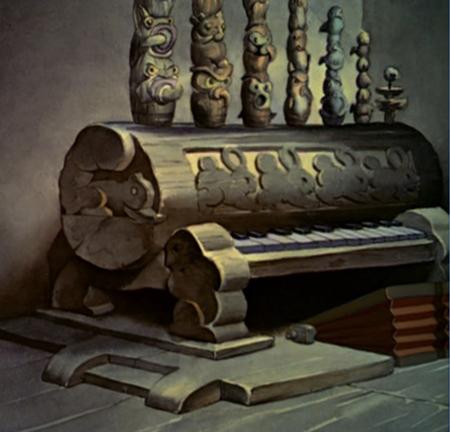Went all out and saw two movies in movie theatres today. First Mamma Mia (ie: the girl movie) and then Hell Boy II: The Golden Army (that would be the boy movie). I have to say that the girls won this round hands down.
Mama Mia is just about perfect. Yes it’s over the top, cranked up to eleven and more in your face than Robin Williams (if such a thing is possible). But it knows exactly what it wants to do, not a shot or even a moment is wasted, and absolutely all of it is in service of deepening the characters. There is not a single gag or line or visual that betrays or confuses the clear central line of the plot and its underlying motivations – and that’s a rather hard act to pull off in a major Hollywood feature film.
And Meryl Streep… Well, what can I say. I’m starting to think that this woman can do absolutely anything. She throws herself into the character of Donna Sheridan (a character that most actors would have played in a winking way) with utter and profound conviction – every bit as much conviction as she brought to Miranda Priestley in The Devil Wears Prada.
In this case she brings to compelling life a woman who has successfully managed to avoid any real decisions or purposeful life changes in the last twenty years. And therefore when Streep sings and dances her way through Dancing Queen like a crazy seventeen year old, you really believe this is a woman who can instantly channel the giddy teenager she used to be (“…young and sweet, only seventeen…”), without the transition seeming even slightly odd or awkward. Rather, the number works – her performance and the direction work in tandem here – as an anthem to the redemptive power of romance and ABBA songs. And it is this precise quality in her character that makes the surprise ending seem natural – even inevitable.
In contrast, the boy movie was a major letdown. Having seen the first Hellboy I assumed that I would be treated to another character oriented film, filled with surprising relationships and unique personalities. Instead, we get a massive watering down of Ron Perlman’s once ecstatically convincing portrayal of a fearsome demon from Hell ruled by his inner child, as played by Lee Marvin in The Dirty Dozen (with a hint of Cat Balou). It wasn’t Perlman’s performance that was at fault here – it was that the writing and direction didn’t give him enough to work with this time out. And that was just the beginning.
Seth McFarlane’s voice character for Krauss is far too broad to work in this context, sounding like an idea for a Monty Python sketch. Meanwhile the relationship between Hellboy and Liz starts nowhere and continues to go nowhere (doesn’t Guillermo del Toro know anything about the need for mystery and mutual discovery when portraying a romantic couple???). And Doug Jones’ character of Abe Sapien – essentially a broadly sketched comic sidekick – should not be in a relationship with a deeply serious tragic princess, since they inhabit mutually incompatible character universes.
But the worst thing is that every few minutes the film stops dead – and I mean deceased, buried, pushing up daisies – while the filmmakers insert yet another gratuitous computer graphic effects scene that has little or nothing to do with the story or characters, but rather proclaims: “Isn’t it cool how we managed to spend all that studio money!” And the effects didn’t always work – many of them took me right out of the world of the film. Effects are supposed to serve the story, not compete with it.
On the other hand, the stylized “storybook” myth at the film’s start (reminiscent of John Hubley’s magnificent opening animation for Watership Down) and the scene of Hellboy and Abe Sapien gradually getting falling-down drunk together while belting out Barry Manilow’s Can’t Smile Without You are worth the price of admission.
But that’s where things came full circle for me: The Barry Manilow sing-along was precisely the moment when Hellboy II found the courage to channel its inner Mamma Mia.


